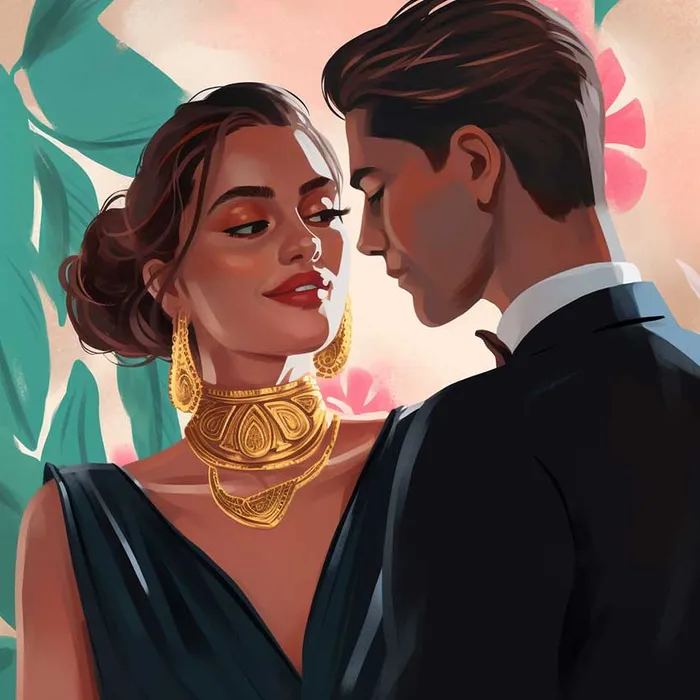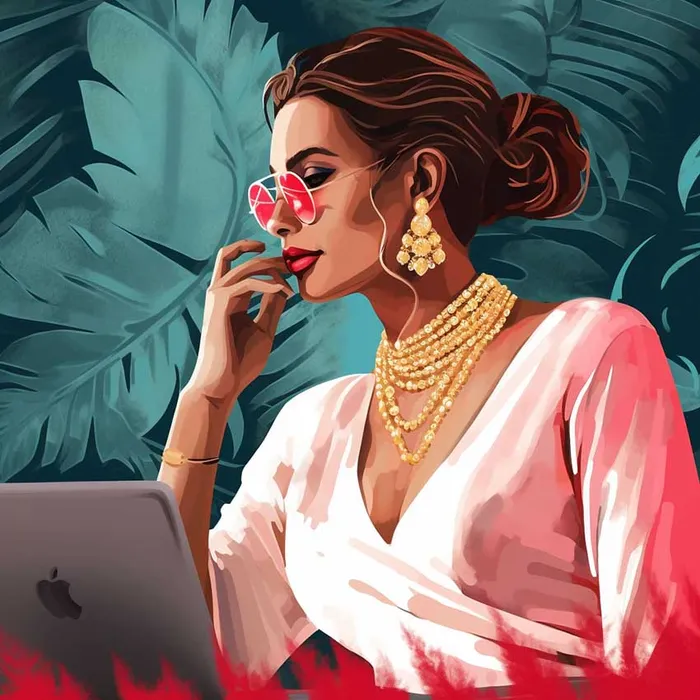I recently watched Netflix hit film Kho Gaye Hum Khan (2023), which is touted as the Gen-Z movie by and for the Instagram generation. Ahana (spoilers ahead), one of the main protagonists, is shocked when her boyfriend breaks up with her without any apparent reason. When he ghosts her, she creates a sexy online persona to win him back. And she does too, only to be broken up and ghosted again after they sleep together.

Modern woman: Caught in the dichotomy between being sexually uber-cool and expecting old-school romance…
In the age of social media, it’s cool for women to be sexually aware and active, but uncool for them to talk about, or expect, the future of a relationship. Has sexual freedom really empowered women, or has it made women actually lose their power in relationships?
Relationships: From Romance to Bromance
In the golden age, men wrote songs about the women they loved.
In the days of yore,
Judging by the old movies, I’m sure…
The people you met were far and few,
So you’d propose to any nice girl you saw,
And try to find out if she loves you too.
But poetry aside, while women’s primary role in society may have been to take care of her home and raise her kids, just a few decades ago, romance was all about a man wooing a woman, ultimately to marry her.
In this way, marriage is the ultimate victory in a relationship, and sex, the ultimate prize.

Christianity considers marriage to be a holy and monogamous union between a man and a woman, wherein sex is one of the duties of a married man towards his wife. Even in Hindu mythology, Lord Rama vowed to be monogamous in his marriage with Goddess Sita.
Monogamy and well-defined relationships continued in the generations after, and were the highlight of retro pop culture.
During my childhood too, the hero trying to impress a woman was a common theme in 90s Bollywood movies and songs. The idea being that it’s a woman’s right to accept or reject. So how did we get here? How did we go from rejection being a woman’s right and, often, expectation to women being rejected without as much as an explanation or goodbye?

The Evolution of the Every-Woman
Take any rom-com from the 90s or 00s, and you’ll see a “relatable” leading lady who’s waiting for the right man. In contrast, the promiscuous woman was always shamed. Sex before marriage was rare and frowned upon, and still is, in many circles.
90s hit TV show Sex and the City, for example, makes this contrast very clear. Samantha, the sexually free character, was often slut-shamed and judged by other women, men and even her own friends. Similarly, in 2000s Gossip Girl, Serena van Der Woodsen was often shamed by her best friend for having multiple sexual partners.
As modern relationships evolved, we went from slut-shaming to more accepting of “sexual freedom”. In 2020s Netflix hit show Emily in Paris, for example, lead character Emily, for example, has multiple sex partners and the TV show does not show this in a bad light, nor is she shamed by her friends, who also have a similar lifestyle involving casual sex.
In the age of social media where everyone is “too cool for love school” and where personal opinion counts more than what’s written in the religious texts, modern relationships are clouded with confusion.

Nowadays, a date doesn’t qualify your partner as your boyfriend or girlfriend, a live-in relationship does not qualify you as exclusive. In fact, modern love is often influenced by money, clout or opportunities thereof.
If every relationship is give and take, then what’s the currency in romantic relationships? What would make a romantic partner powerful over the other? Sex, we could argue. In cinema, sex is often shown as a weapon. Partners can use sex as a weapon to have their way. Femme fatales use their sexuality to manipulate men. Or women can withhold sex to have the upper hand.
In Sex and the City, Samantha famously said in the very first episode, “You can bang your head against the wall and try and find a relationship, or you can say, “Screw it,” and just go out and have sex like a man - without feelings.” While most female viewers of the show had a love-ya-don’t-wanna-be-ya relationship with her at the time the show aired, more and more women would relate to this philosophy today.
What Makes Someone Attractive to Us?
Ultimately, we all seek validation, from our friends, parents, peers and especially partners. A partner who excels in a quality we value or lack attracts us more. So perhaps, when we’re young, sex may be the currency in relationships. However, it could be anything we value, from commitment to companionship, and if you’re more mature, love.
Partners who are more confident in their value are usually more difficult to please, especially in areas they excel. And that makes us value their approval more, and seek their validation.
So in my opinion, a healthy relationship for a woman would be one in which she feels most confident and valued by herself, which would make her valued by her partner too. And that value, that confidence can only come from qualities and abilities that extend beyond the relationship, and a lot of self-respect.

Sexual Freedom or Romantic Power: You’re a Woman You Can Only Choose One.
So is there a connection between the modern woman’s sexual freedom and power-play? Many would disagree, as is apparent from a poll I did on social media this week. When asked if sex before marriage is cool, 50% of respondents said it depends on the person. However, when asked if sex before marriage is for the vulnerable or empowered, 50% respondents also said that there is no relationship between the two.

So here’s my unpopular opinion, feel free to disagree in the comments…
How we treat our partner in a relationship all comes down to respect. If a woman wants to wait for marriage to have sex, it shows that she has ‘control’ over her sexual urges. And someone who is more in control deserves our command and respect.
On the contrary, a sexually ‘free’ woman may be thought of by her partner as less in control of her urges (and therefore emotions). And if you show lack of control over your emotions, you’re considered more immature by others, therefore they respect you less.
This lack of respect makes you vulnerable to ill treatment, such as cheating or ghosting, being taken for granted, i.e. not being wooed romantically.
I know this sounds like very old school thinking, however, the way men get treated in relationships is also based on similar psychology. Women often consider men who are more self-made, successful, ambitious or culturally aware to be attractive. However, a man needs more control over his emotions and urges to be successful, for example, men who in their youth work hard while their peers waste time tend to become more successful. This shows their maturity and thus their command for respect in a relationship.
Sex is only the ultimate prize in a relationship if it comes from someone who values it too much to give it away.



